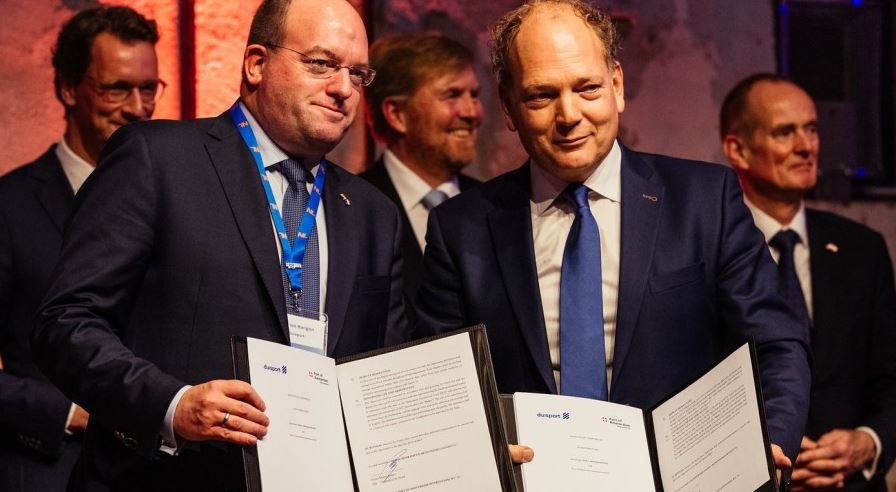Port of Amsterdam has signed three crucial agreements during the H2 Connecting Event in Duisburg. These agreements aim to solidify the port’s position as a vital supplier of renewable hydrogen and derivatives to the German market, aligning with the collaborative efforts between the Netherlands and Germany in the realm of renewable hydrogen.
The overarching goal of the agreements is to establish intra-European corridors for renewable hydrogen, fostering collaboration between key players in the Netherlands, Germany, and Spain. The collaborative efforts seek to facilitate the supply of Basque hydrogen to industrial offtakers in the Rhine-Ruhr region, with the Port of Amsterdam acting as a crucial gateway for renewable hydrogen and synthetic fuels into the German market.
Technology: Exploring Resilient Supply Chains and Green Hydrogen Connections
Memorandum of Understanding (MoU): The first agreement builds on the existing connection between the Port of Amsterdam and the Basque Country. The MoU, in collaboration with Port of Bilbao, Petronor, EVE, Zenith Energy Terminals, and Evos Amsterdam, explores the development of an intra-European corridor for renewable hydrogen. This initiative aligns with the European Union’s ambitions to establish such corridors.
Joint Study Agreement: The second agreement focuses on the connection between the ports of Amsterdam and Duisburg. Through a Joint Study Agreement, the Port of Amsterdam and duisport aim to assess technical and financial requirements, transport modalities, and infrastructure for realizing a resilient supply chain between the two ports. Duisport aspires to become a European hydrogen hub, contributing to the development of a Europe-wide hydrogen network.
Framework Agreement: The third agreement, signed with EnBW Energie Baden-Württemberg AG, Zenith Energy Terminals, and GasLog, aims to establish a green, liquid hydrogen connection through the Port of Amsterdam to EnBW’s facilities in Germany. This Framework Agreement leverages existing collaborations and emphasizes the transport of hydrogen as a crucial step in contributing to the decarbonization of the economy.
The agreements underline the ambition of the Port of Amsterdam to not only become a key destination for imported renewable hydrogen but also to serve as a transshipment hub, supplying renewable energy to the German hinterland. These efforts contribute to the decarbonization of industries within Europe, emphasizing the vital strategic role of the Port of Amsterdam in facilitating hydrogen and e-fuels corridors between production regions.
